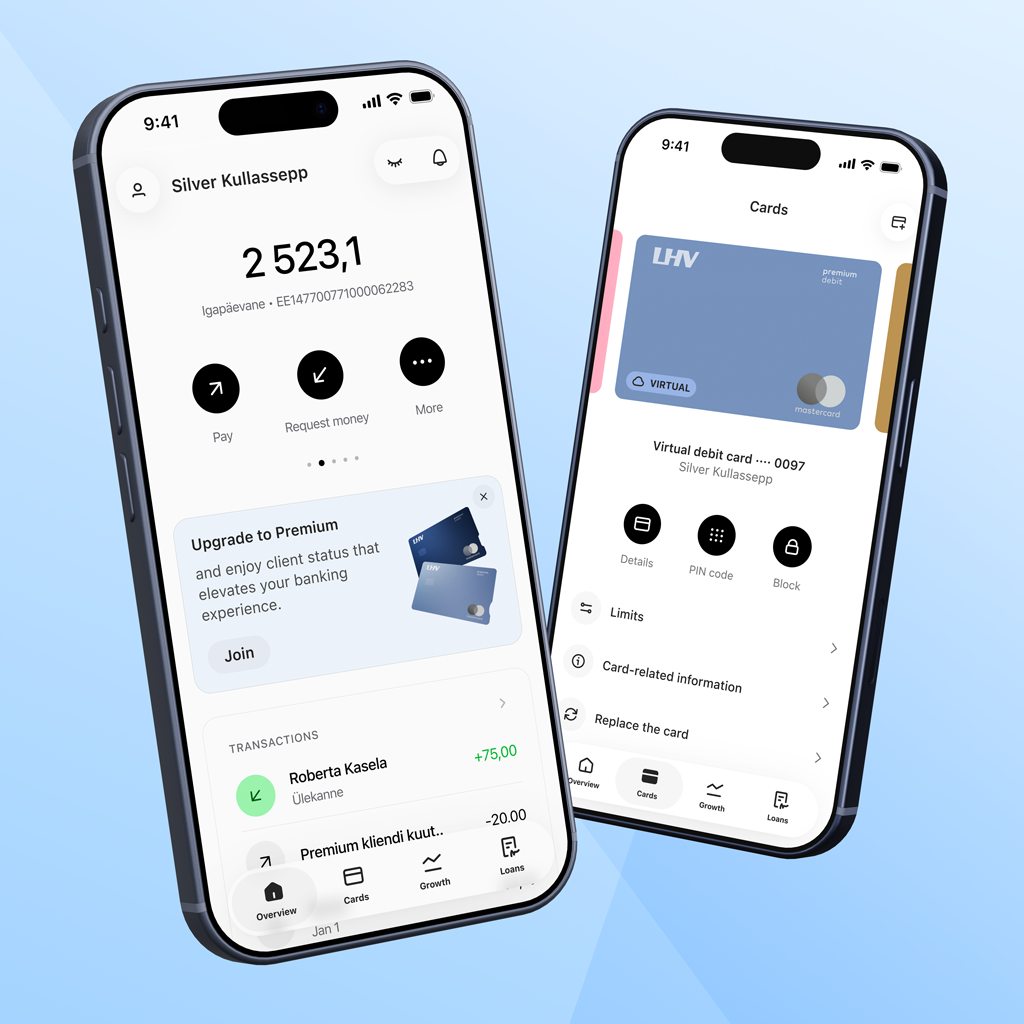
In today’s economic climate, where interest rates have almost peaked and uncertainty has just about become the new normal, buying a home has become a much more challenging task for many than it was a year or two ago. However, people continue to buy and renovate properties even in more difficult economic times.
According to Catlin Vatsel, Head of LHV’s Home Loan Department, the increase in Euribor rates has also affected the situation of borrowers, making it more expensive to take out a loan. ‘On the other hand, the risks and opportunities for those who take out a loan right now are very well assessed, as the price of money will one day become more advantageous for them. Interest rates will come down again, but it is too early to say by what magnitude, when, and how fast,’ Vatsel added. In the case of a home loan, it is important to bear in mind that it is a regular expense that can amount to 30–50% of a person’s income. Loans are usually linked to a floating interest rate, which is reviewed every six months.
According to Vatsel, there are significantly fewer properties with prices starting at half a million and above being bought today, but transactions of up to € 250,000 are still quite common.
Who is able to get a loan today?
Example 1
Kristi’s gross salary is € 2,093, making her net salary € 1,615. As Kristi has no financial obligations and she recently also paid off her credit card balance, in consultation with the bank they agreed that Kristi could afford a property costing up to € 130,000. This is on the condition that her own contribution is 15%, i.e., € 19,500.
Kristi has been looking at real estate offers for about a month and a half, and she thinks that in Tallinn, she could currently afford a 2–3-room apartment in Mustamäe, Õismäe or Lasnamäe, or a 2-room apartment in an older building in the City Centre. As Kristi is originally from Tartu, she is also considering the purchase of an older house around Tartu, which is also in the aforementioned price range.
Example 2
Helen and Martin, a cohabiting couple with two school-age children, have long lived in a rented apartment and dreamt of a home of their own. They have both put in extra work and have raised their own contribution part within a couple of years. Their income, including child benefits, is around € 3,500 per month. The family has one credit card and their car has been fully paid for. They have been looking at apartments for over a year and will soon make their decision. The bank has promised them € 177,000, on the condition that their own contribution is 15%. For this amount, they can buy a 3–4-room apartment in Tallinn, or a 4-room house in Harju County.
To refinance or not?
According to Vatsel, people are also increasingly more interested in refinancing. ‘This means that an existing home loan is transferred to another bank that offers better conditions,’ Vatsel explained. ‘At the same time, with refinancing, it is important to bear in mind that the transition phase may involve additional costs, so it is worth concluding a loan agreement with the new bank today,
and informing the old bank three months in advance of your wish to transfer the loan. In this case, there will be no additional fees. The loan will be repaid to the old bank after three months have passed.’
Example 3
Riho took out a home loan five years ago from what was then his home bank, with an interest rate of 1.9% plus 6-month Euribor. The current outstanding amount of the loan is € 149,874 and the loan is partly covered by an additional guarantee. Riho researched the possibility of better terms from several banks and decided on LHV specifically because he was offered a better margin of 1.75% and the bank was also willing to release the additional guarantee. For Riho, this was the deciding factor, as his intention is to sell the property. The bank did not charge an extra fee for refinancing, but Riho had to pay around € 200 for the valuation report, and a notary fee of € 375. Going forward, Riho’s monthly payment will be lower, and the second property will be mortgage-free.
**One-off costs **
It is worth remembering that in addition to your own contribution and the monthly loan payments, buying a home also comes with one-off costs. These include the contract fee (approx. 0.5% of the loan amount), the real estate valuation report (€ 150–300), notary fees, and the state fee.
Every difficult situation also offers positive opportunities – for example, the current conditions lean in favour of buyers, who have more time and opportunities to take a leisurely look around, and even bargain. So it is always the right time to buy a home, as life needs living, no matter the current economic situation.




